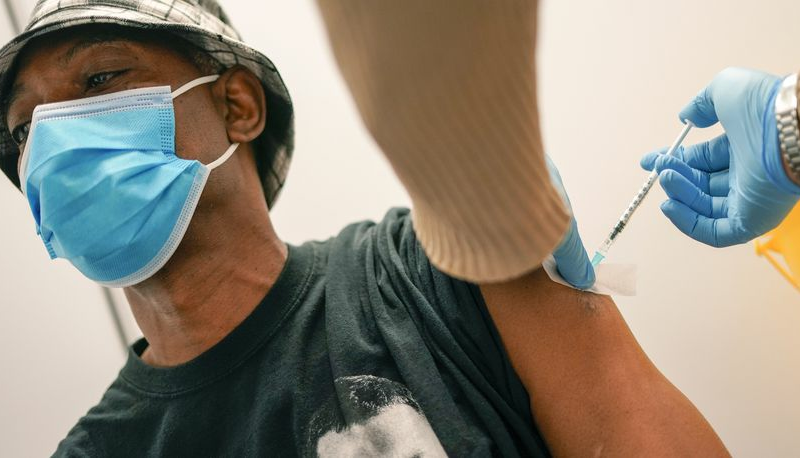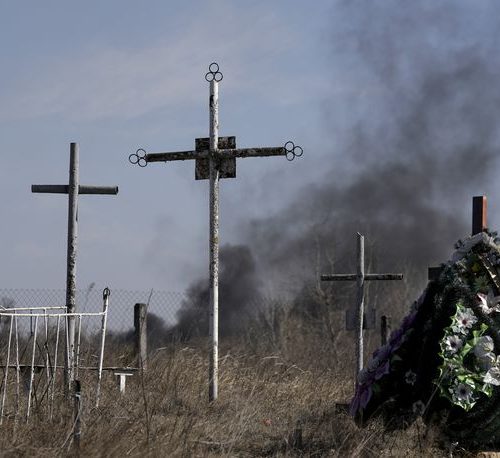By Helena Oliviero, The Atlanta Journal-Constitution
Troy Warren for CNT #COVID-19
The first case of a highly mutated variant has been detected in a Georgia resident, health officials said Friday.
The Georgia Department of Public Health said it has been notified of a Georgia resident who had recently returned from South Africa and was in Georgia for two days before traveling to New Jersey where they tested positive.
The individual is fully vaccinated and is isolating in New Jersey. Contact tracing is underway there and in Georgia to identify close contacts who are at risk of infection. No more information on the individual was immediately made public, including where they live.
“Vaccination and boosters are key to preventing further transmission of COVID-19 and help prevent new variants like omicron from emerging,” said Dr. Kathleen E. Toomey, commissioner of the Georgia DPH.
The omicron variant, first detected in Southern Africa, and classified as a “variant of concern” by the World Health Organization, has already been found in at least 23 countries and multiple states in the U.S.
Public health experts say they’re still learning about the threat it might pose, but they’re calling for caution, not panic. They say tools already at hand to combat the pandemic — especially testing, vaccines, and mask-wearing — will help society weather omicron and future variants, which almost certainly lie ahead.
Scientists are racing to learn about omicron’s transmissibility, severity and ability to evade vaccines. But even if existing vaccines prove less effective against the variant, public health experts say vaccination and boosters might provide enough of an antibody defense to still ward off severe illness and death.
For now, the delta strain, which was responsible for the most recent spike in cases and deaths, accounts for virtually all cases of COVID-19 in Georgia. Cases are again on the rise as cold weather and holidays are bringing people together inside.
Here’s a look at major developments related to COVID-19 over the past week.
Testing for the new variant
Testing will continue to be important and health officials say the more simple PCR test can provide a clue whether the strain is the omicron variant. This could be key in quickly spotting potential cases.
Like the Alpha variant earlier in the pandemic, a specific pattern in the COVID-19 virus’ genetic material can be detected by at least one brand of PCR tests, signaling it may be the omicron variant. A more involved test — full genomic sequencing — is needed to confirm it’s omicron.

PCR tests, considered the gold standard for testing, begin with a sample from a patient’s nose or throat. The next step is to process the genetic material so that the presence of even a small amount of the virus can be confirmed. This is done using a technique called a polymerase chain reaction. PCR tests are widely used by commercial pharmacies, doctor’s offices and mass vaccination sites and can typically be completed within a few hours.
Genetic sequencing is a much more complex process done on a small percentage of positive coronavirus samples. The process begins with extracting the genetic material from the sample. Then, sequencing machines map out the entire SARS-CoV-2 virus genetic code — all 29,903 individual building blocks. The machine can take three days to complete that step, and then scientists must manually review the findings.
More mutations ‘than we are used to’
Dr. Anne Piantadosi, an assistant professor in the department of pathology and laboratory medicine at Emory University, has been doing sequencing since the earliest days of the pandemic. She says most variants of concern have a number of mutations from the original iteration of the virus, but “omicron has even more than what we are used to.”
She said while some of the mutations in omicron have been associated with faster replication, increased transmissibility, and partial immune evasion, it’s too soon to know if the variant will lead to more serious illnesses and deaths.
Call for vigilance
Dr. Michael Eriksen, founding dean of Georgia State University’s School of Public Health, said it may be a week or two before more is known about the seriousness of the variant and level of protection existing vaccines will offer. He added it’s particularly important for those at high risk of serious illness to take the same strict protective measures as they did early in the pandemic: strict mask-wearing and social distancing in public.

And for those who are not yet vaccinated, Eriksen said, “now is the time.”
Dr. Dianna Grant, Phoebe Putney Health System’s chief medical officer also made a plea for more people to get vaccinated
“Omicron has more mutations than any other identified variant, meaning it could be more effective at evading the immune system. That could make people who have already had COVID more vulnerable to re-infection,” Grant said in an e-mail.
Relatively low vaccination rates also have her worried.
“In a month or two, we don’t want to see a hospital full of COVID-19 patients once again and look back saying, ‘We could have avoided this, if more people had been vaccinated.’”
Staff writer Ariel Hart contributed to this report.
In Other NEWS



































